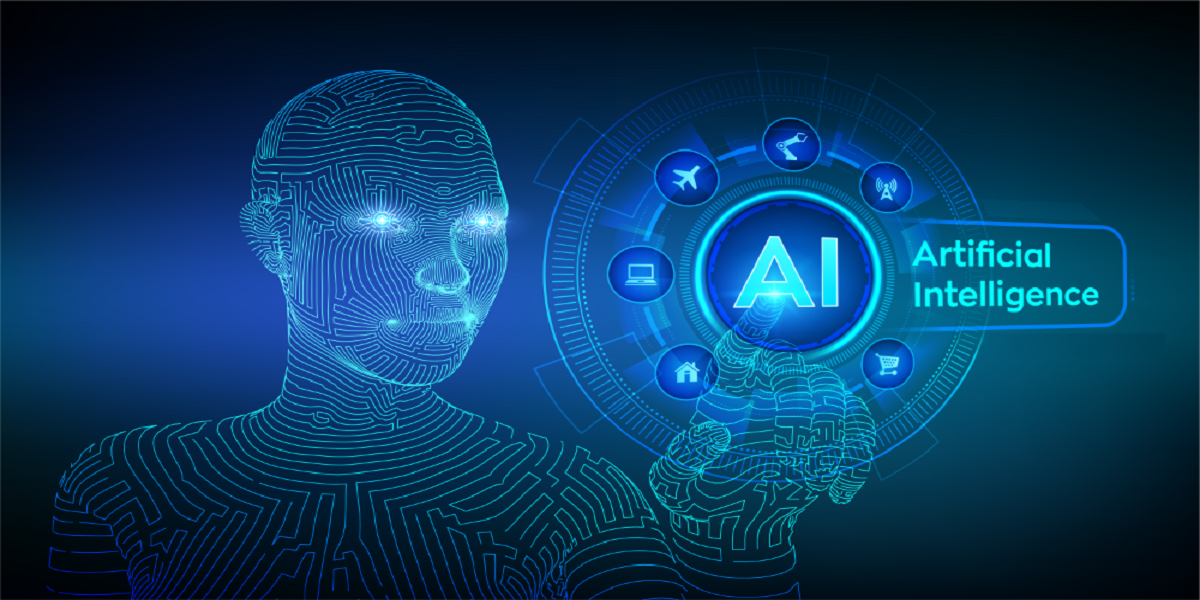
7 Points By Which AI Is Transforming Enterprise Software
- By Matt Robson
- 23-08-2021
- Artificial Intelligence
If you want to grow your organization beyond the current level, the most reliable and scalable way of doing so is by implementing AI. Having enterprise software is undoubtedly necessary, but without modern tech additions like artificial intelligence, blockchain, and big data, keeping up with the competition would become overwhelming. These advanced techs unlock the doors to a whole new world of opportunities that will allow you to seize the benefits of real-time, well calculated, and well-informed decisions on a continuous basis. AI is emerging as one of the best tools to solve many long-standing issues, and it is serving us on multiple fronts, be it taxation advice or finding real-estate deals. Given the rising popularity of AI in all spheres, missing out on it would equal leaving a lot of money on the table.
If you are looking forward to hiring enterprise software development in the USA with AI capabilities, here are the top seven areas where it can benefit you the most. Let's get started.
#1 Sales Forecasting
Artificial intelligence tools are being proactively used to enhance the sales processes, including opportunity recommendations and leads, automating upsell and cross-sell suggestions and product pricing. With the help of enterprise software databases, AI tools can analyze and create mathematical models of the key drivers that impact sales to generate estimated demand figures. Here, both external stimulus and previous data is used by the AI tools, with the ERP acting as the single source of truth. The resultant reports can help you understand the nature, time, and volume of demand, expected demand centers, product-wise demand, purchase price-related insights, and any required changes in the product appearance. Using AI-enabled sales forecasting may require you to custom software development services as it is specialized too.
#2 Warehouse Planning
Artificial intelligence is perfectly best suited to the streamlined movement and stacking of materials and products in the warehouse. Artificial intelligence algorithms pull data together from manufacturing, ordering, and warehouse systems to decide optimal warehouse utilization and even alter configurations to meet demand. Warehouse management takes on a fully new meaning when artificial intelligence tools guide your resources for managing operations, equipment and coordinate with other stakeholders.
#3 Production Planning & Control
Production planning and control is yet another area that will benefit tremendously from the advent of AI in ERP suites. Earlier, humans had to make most of the critical decisions based on the data available. With AI, most of these tasks will be eliminated while the user will be provided with greater insights across all ERP dashboards. The refined information will provide a better view of how production lines and other related activities are being undertaken. AI will redefine the macro-level and micro-level planning of PPC operations while also allowing one to control various processes dynamically.
#4 Using AI For Predictive Maintenance
AI is finding widespread applications in every sector, and the same goes with predictive maintenance. Predictive maintenance is an approach that collects, analyzes, and utilizes data from different manufacturing sources like sensors, switches, or machines. Then, it uses AI algorithms to anticipate equipment failure before it actually happens. Regular monitoring technologies such as the internet of things (IoT) enterprises already use connected devices. However, the key to better business efficiency lies in checking the outputs of different technologies and taking the next step, and selecting advanced algorithms and machine learning to take actions that form real-time insights. Thus, predictive maintenance with artificial intelligence is its core application in manufacturing and optimizes the whole maintenance strategy from top to bottom.
#5 Financial Management
Financial management is one of the core areas where ERP software makes its impact. AI-based financial management module in your ERP will allow you to track and analyze cost lines across departments and establish an accurate model of the value change throughout your organization. This also includes vendor management, inventory management, payroll, accounting, dealers-brokers management.
Keeping all processes and departments on the same page financially is a herculean task and doing it manually is neither sustainable nor advisable. As a user, you would also be able to avail a wide range of analytical reports that are personalized to meet your preferences. This would contribute to you making better use of the ERP's capabilities.
#6 Making Product Recommendations & Predicting Customer Behaviour
With AI-enabled purchase recommendations, you can instantly start increasing your conversions as your customer's preferences and selling margins are taken care of at the same time. For instance, it will use the data from your physical stores and/or ecommerce website to understand sales patterns, devise the right cross-selling, down-selling, and upselling strategy, and target the right customers accordingly. AI will also help you with dynamic listing and personalized offers for both online and walk-in customers. The feedback suggestions from customers are also shared with the production and QA team through respective modules.
#7 Improved Talent Management
Organizations can use enterprise AI software to streamline the hiring process by automating resume praising, performing initial screening, tracking interview performance, and assisting in onboarding. It can also help your staff members in the form of a virtual assistant as it uses the data from ERP regarding the tasks allocated and completion status. Performance management and disbursement are also beneficial when AI is involved in employee-focused operations. The self-servicing portal is another area where maximum benefit.
Summing Up
Towards the end, we can only say that the true potential of AI is yet to be explored when it comes to ERPs and all other domains. But the areas mentioned above are most likely to be benefited in the near future as these ERP features have people, insights, and processes to take care of with the scope of smart automation. However, one should be aware of the fact that implementing AI is a costly and time consuming process, especially for enterprise solutions, since it is leveraged by limited players. We hope that this article helps you understand the role of AI in enterprise software.
Recent blog

Harnessing Social Media: Tactics For Powerful Marketing Success Achievement
Social Media | 25-07-2024
7 Hidden Secrets of MSI Laptop Boot Menu Key
Technology | 24-07-2024




